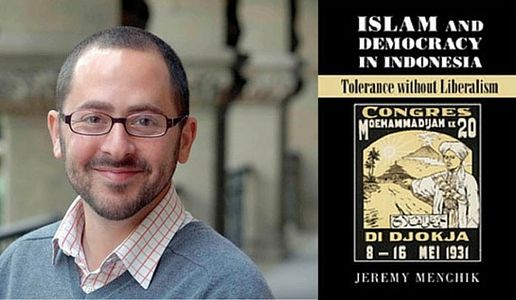Islam and Democracy in Indonesia Reviewed in FA
Islam and Democracy in Indonesia: Tolerance Without Liberalism, by Jeremy Menchik, Assistant Professor of International Relations at the Fredrick S. Pardee School of Global Studies at Boston University, was recently reviewed in Foreign Affairs.
Islam and Democracy in Indonesia was reviewed in Foreign Affairs by Andrew J. Nathan on December 12, 2017.
From the text of the review:
Indonesia is famed for its tolerant style of Islam, but Menchik argues that it would be a mistake to assume that this has any bearing on the country’s views of Western-style liberal democracy, in which religious faith is a matter of individual choice. Rather, under Indonesian law, every citizen must belong to one of six recognized religions or suffer certain disadvantages. Nor is the state secular: state schools teach religion, proselytizing is forbidden, and blasphemy is a crime. Menchik polled leaders of the two biggest Muslim organizations and found that they are willing to accept Christians and Hindus in public office because they regard their religions as legitimate, but they are unlikely to accept Ahmadis (who adhere to an offshoot of Islam), animists, or atheistic communists in government. His revealing research into local history shows how the diverse experiences of different Muslim organizations have produced a wide range of beliefs about religious tolerance and even about what a belief system has to look like in order to be counted as a religion. Since the concept of tolerance varies so much among Indonesian Muslims, the public as a whole could become more tolerant over time or, as seems to be happening now, less so.
Jeremy Menchik’s research interests include comparative politics, religion and politics, Southeast Asia, and the Middle East. At Boston University he is a member of the graduate faculty of political science and coordinates the MAIA program with specialization in Religion and International Affairs.
